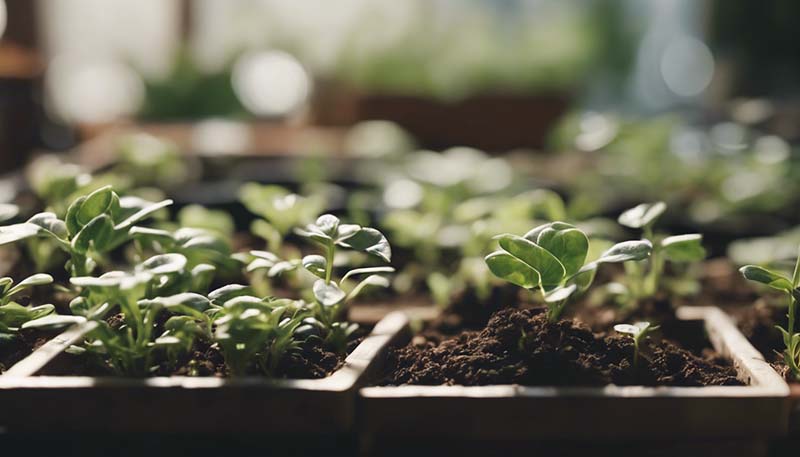Indoor Gardening: The Benefits of Using Organic Fertilizers
Gardening indoors presents its own unique set of challenges and rewards. One of the key considerations for any indoor gardener is how to provide the necessary nutrients for plants to thrive. Organic fertilizers offer a natural, sustainable, and effective way to nourish your indoor plants. In this article, we'll explore the benefits of using organic fertilizers in indoor gardening and how they can enhance your green space.
What Are Organic Fertilizers?
Organic fertilizers are derived from natural, plant-based, or animal sources. They are a great alternative to chemical fertilizers, which can sometimes cause harm to the environment and to your plants if not used properly. Organic fertilizers release nutrients slowly, providing a steady supply of nourishment for your plants.
Advertisement
The Benefits of Organic Fertilizers
1. Environmentally Friendly
Organic fertilizers are biodegradable and do not contribute to water pollution or other environmental issues associated with synthetic fertilizers. They are a sustainable choice for gardeners who are mindful of their ecological footprint.
2. Safe for Pets and Children
Unlike chemical fertilizers, organic options are safe if ingested by pets or children. This is particularly important for indoor gardens where small children and pets may come into contact with the plants and soil.
3. Promotes Healthy Soil
Organic fertilizers improve soil structure by increasing the organic matter content. This leads to better water retention, aeration, and nutrient availability, all of which contribute to a healthy root system and overall plant health.
4. Supports Beneficial Microorganisms
The organic matter in these fertilizers provides food for beneficial soil microorganisms, which in turn help break down nutrients, making them more readily available for plant uptake.
5. Reduces the Risk of Nutrient Burn
Because organic fertilizers release nutrients slowly, there is less risk of over-fertilization, which can lead to nutrient burn and other problems for your plants.
6. Enhances Flavor and Nutrition
Many gardeners report that plants grown with organic fertilizers have better flavor and higher nutritional content. This is especially true for edible plants like herbs, vegetables, and fruits.
7. Cost-Effective
While some organic fertilizers may have a higher upfront cost, they often last longer and provide more consistent results, making them a cost-effective choice in the long run.

8. Versatility
Organic fertilizers are suitable for a wide range of indoor plants, from flowering plants to foliage plants, and can be used in various types of growing mediums, including soil and hydroponic systems.
Types of Organic Fertilizers
There are many types of organic fertilizers available, each with its own nutrient profile and benefits:
- Compost: A rich source of nutrients as it breaks down.
- Manure: High in nitrogen, but should be aged to avoid burning plants.
- Bone Meal: A good source of phosphorus for blooming plants.
- Blood Meal: High in nitrogen for quick growth.
- Fish Emulsion: A liquid fertilizer that is easy to apply and taken up quickly by plants.
- Seaweed Extract: Contains trace minerals and growth hormones.
- Worm Castings: A natural, odorless, and nutrient-rich option.
How to Use Organic Fertilizers in Indoor Gardening
When using organic fertilizers, it's important to follow the instructions on the product label. Here are some general tips:
- Always dilute liquid fertilizers to the recommended strength.
- Apply fertilizers according to the needs of your specific plants and the growing stage they are in.
- Avoid over-fertilizing, which can lead to an imbalance of nutrients.
- Rotate the types of organic fertilizers you use to ensure a broad spectrum of nutrients.
- Monitor your plants' response to fertilizer application and adjust your feeding schedule accordingly.
Conclusion
Organic fertilizers offer a safe, effective, and environmentally friendly way to nourish your indoor plants. By choosing organic, you're not only caring for your plants but also for the environment and the health of those who enjoy your indoor garden. With a range of options available, you can tailor your fertilization strategy to the specific needs of your indoor garden, ensuring a lush, healthy, and vibrant space.
Figure: An example of a thriving indoor garden made possible with the use of organic fertilizers.
Comment